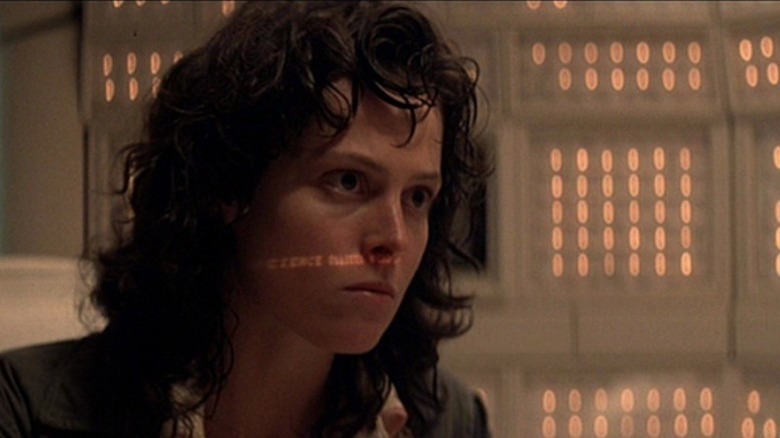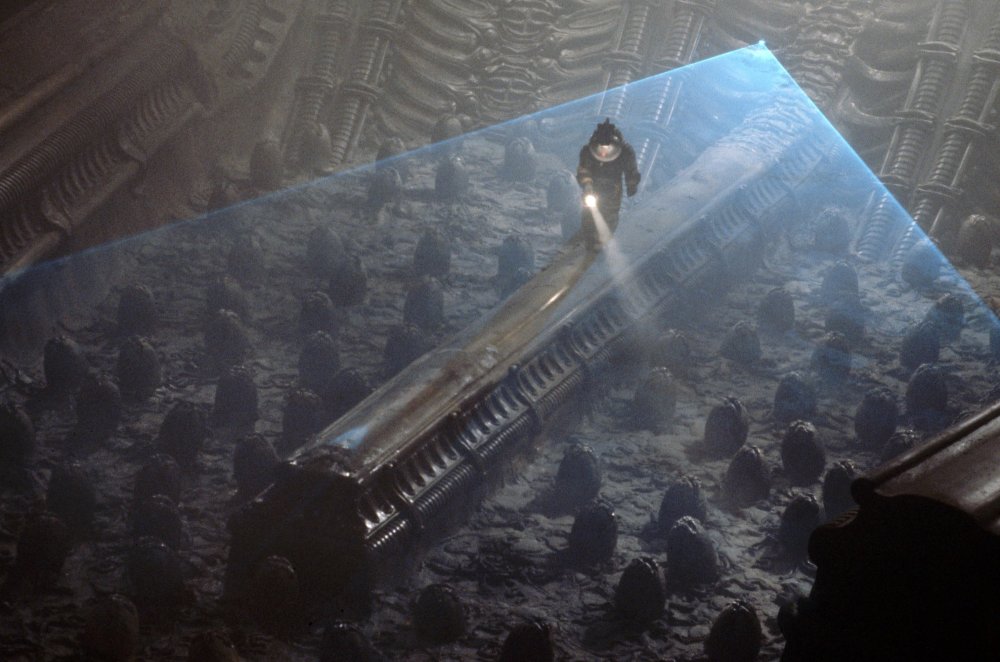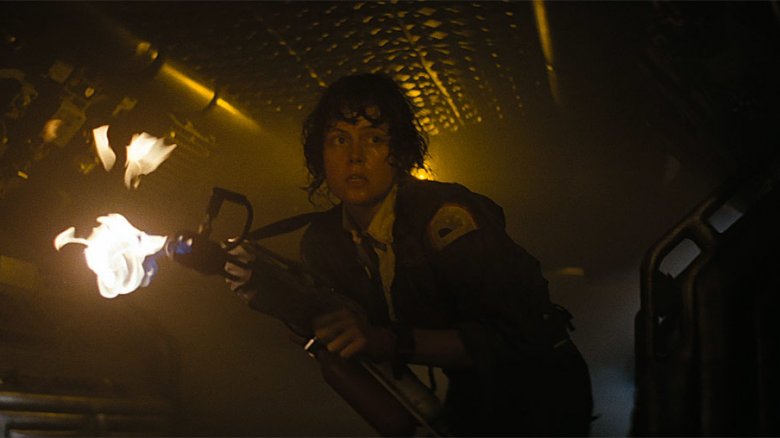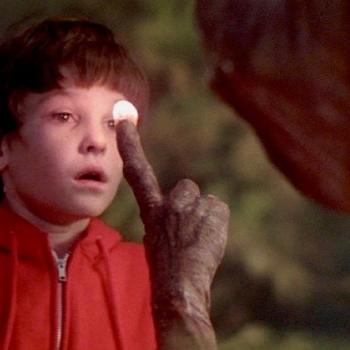
I knew that writing about this film through a religious perspective was going to be difficult, but I wanted to try.
While popular film seldom dares to invoke religion or religiosity directly, there’s very little about Ridely Scott’s Alien that lends itself to an easy spiritual reading. No clear Christ-insert, no symbolic death and resurrection, not much to say about repentance or ministering. Even the aesthetics of the film read as dark, inorganic, and sterile. This feels a world beyond God. But maybe that’s the point. Maybe that’s the lens through which you understand what this film offers spiritually. What does it look like for a world that replaces God with machinery, charity with profit?
Ridley Scott’s 1979 sci-fi horror is famously a reflection of the way that the heads of big corporations do not value the wellbeing of those under their employ. The film is premised on a spacecraft of working-class miners charged with returning a shipment of ore from their intergalactic harvest. Their voyage home is waylaid when the ship intercepts a signal from a nearby moon, interpreted to be an SOS call. The crew inspects the planet, only for one of them to be infected by a strange organism, which then spawns a ruthless predatory alien creature. As the monster starts to pick them off one-by-one, the crew learns that they were deliberately sent to this planet by their company in order to retrieve the creature for study knowing that the crew would certainly be killed off by it.

There is a sort of godlessness in the way the company elects to sacrifice the lives of the crew in order to extract the alien lifeform for examination. They are without natural affection. As Paul writes in 1 Timothy 6, “For the love of money is the root of all evil.” The love of money is what motivates the company to sacrifice the lives of their workers in order to acquire this creature as a weapon. The savagery with which the monster eliminates the crew members is a sort of extension of the ruthlessness of the company that got them into this mess in the first place.
You also see the way that, at the start, the characters feel safe that their service to this system promises them security under it. When pressed about whether this detour will compromise their earnings, Ripley assures Parker, “You are guaranteed by law to get a share.” Too bad the law doesn’t guarantee their employer won’t sacrifice them to help boost that bottom line. This conflict against the machine perhaps reaches its apex in Ripley’s race to escape the self-destructing ship. When she discovers the alien is blocking her exit, she tries to override her self-destruct order. The system refuses to cooperate, leaving her to make a mad dash for her life before the ship is destroyed.
Even the fact that Ripley ultimately survives her experience is marked by a sort of nihilistic happenstance: it could have just as easily been her who was attacked by the face-hugger, or who met the creature in the landing station or the air ducts. At least until her final encounter on the escape pod, it really is only luck that she is not killed off by the monster. There is a sort of absence of divinity in the way she survives, as there was in the way all her crewmates were savagely killed. (Don’t worry, she comes back to kick alien butt in the sequel, and that is nothing short of celestial.)
I don’t imagine I’ll face much contest in suggesting that the world in which we currently find ourselves is not as abounding in godliness as we might hope for. It is a world built on the kind of coldness and apathy we see exhibited in this film, and that’s too bad for all of us. I don’t have an easy fix for that except … remember what it looks like when a world has turned its back on God, and fight all the harder to protect spaces of godliness where they still thrive.














